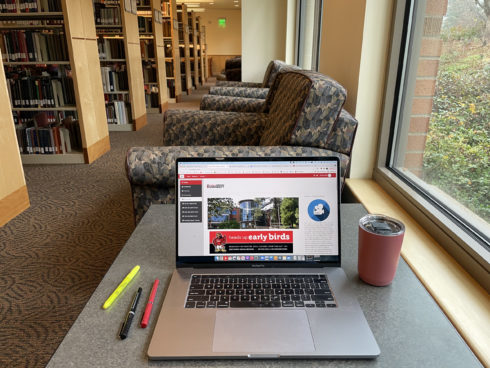There are some things rulers and the powers-that-be will never learn. The more they struggle to silence their opponents by cutting off means of communication – such as the Internet – the more it is evident how wily and resourceful people can be, and how they will always find a way to speak out against injustice.
Soon after the Egyptian protests began, then President of Egypt Hosni Mubarak and his troubled government made the revolting decision to cut off all Internet access in in the country. The move was a lame attempt to silence dissenters. If it worked at all, it wasn’t for very long.
Egyptians [and anyone else] soon had the good old-fashioned phone as a means of being heard. Google, Twitter and SayNow joined forces to provide protestors, dissenters and supporters alike with three phone numbers to call and leave voicemails, which were converted into tweets or could be listened to as audio.
I’m sure the government thought they had pulled a swift move by taking away an outlet for people to speak out against, Mubarak, a ruler who is essentially a dictator. If the majority of Egyptian people felt he was wrong for their country and insisted he leave, there was little the government could do to silence them.
It seems he finally figured this out, as proved by his move on Fri, Feb. 12, to step down as Egyptian President.
Even some people outside Egypt were getting involved, leaving messages just to comment on the day-to-day developments. Some gave encouraging words to protestors and some spoke out in favor of the government.
It’s clear that Mubarak was shaking in his leather loafers. An anti-protest crowd showed up on horses and camels, fighting back against the people in favor of Mubarak’s removal. It was later learned that the government had circulated fliers calling for violence against protestors.
Many of those that showed up to fight for the government are owners of businesses that depend on tourist dollars. Many news outlets, including BBC News and CNN, reported that many vendors from the area around the pyramids showed up to fight because they are losing large amounts of income. Tourism is down, and it would be better for them if the status quo were maintained. These people learned they were not the majority.
So, our technology can serve a higher power! No longer just for hooking up with friends, posting random musings or building a Jeopardy-competing computer, we can use our amazing technological advances to bring justice to the world. It sounds idealistic and naïve, but that’s what has happened in Egypt and Tunisia. It also happened in the disputed Iranian presidential election almost two years ago when Facebook and other Internet sights were used a means to bring attention to voting irregularities.
Facebook was also praised by Internet activist and Egyptian Google executive Wael Ghonim. Ghonim disappeared on Jan. 27 and was missing for 11 days, until finally it was learned he was detained by the government and being subjected to interrogation. On Feb. 6, Amnesty International demanded his release, and he was freed on Feb. 7.
Soon after his release he gave an interview to the Egyptian channel DreamTV, during which he praised protestors and energized the pro-democracy movement.
In an interview with CNN, Ghonim said, “This revolution started on Facebook … in June 2010 when hundreds of thousands of Egyptians began collaborating.â€
“The media war was one the Egyptian regime played very well,†Ghonim said. The use of Facebook was a means of fighting back.
But like any great idea, there is a downside: the electronic trail left by Internet users is often easy to trace. In Iran and China, the government has used the trails to track down and punish activists and dissenters.
A New York Times article by Scott Shane talked more about the Egyptian protests as well as the Internet trails. “The Net Delusion: The Dark Side of Internet Freedom,†is a book by Evgeny Morozov, a Belarus-born American scholar, that focuses on ways a government can use the Internet against its citizens. Often the trails are easy to follow, enabling the punishment of activists, and it’s not an uncommon practice for a government to hire thousands of people to post pro-government comments online daily. So it’s not all good news…
Whatever drawbacks “Internet Revolution†may have, it’s nothing compared to the power the web gives us as a people and as a community conscience. We can use social-media sites and quick Internet access to report on developing news like we’ve never been able to before. And, as witnessed in Egypt, if our Internet is taken away, we can get around that, too. If we harness this power and use it to keep our rulers in check, the possibilities are promising.
CNN asked Ghonim, if the Tunisian revolution was first and now Egypt, what’s to follow? Ghonim replied, “Ask Facebook.â€


